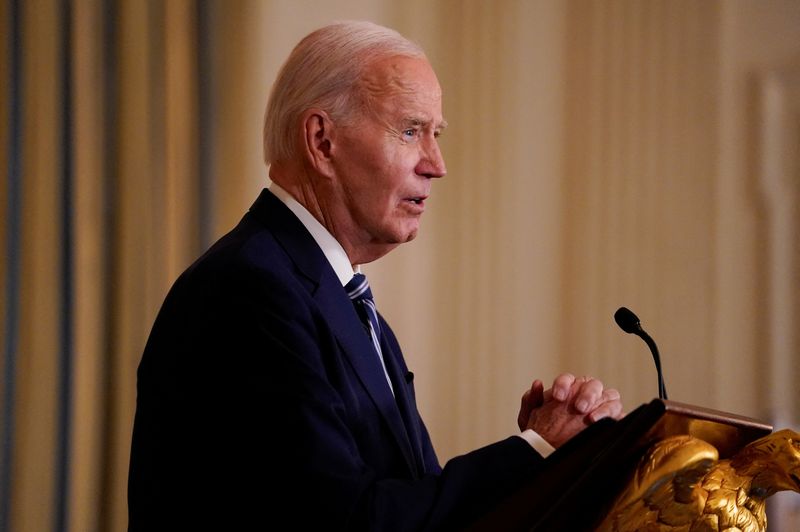Biden team wraps up expanded clean energy credit guidance
WASHINGTON (Reuters) - The Biden administration on Tuesday released guidance to help companies secure clean energy tax credits under the 2022 Inflation Reduction Act, finalizing a program to extend subsidies long available for wind and solar to other low carbon sources.
The move is part of outgoing President Joe Biden's actions meant to shore up his administration’s broader efforts to fight climate change. They could prove vulnerable once President-elect Donald Trump takes office later this month on a platform of cutting spending and maximizing fossil fuel output.
Trump has said he will gut the IRA, Biden’s signature climate law, to save the U.S. budget hundreds of billions of dollars, though doing so would require support from Congress.
U.S. officials announcing Tuesday’s guidance said the IRA's technology neutral clean energy program offers as much as 30% tax credits for production and investments in climate-friendly power - a perk that has been available to solar and wind projects for years.
The program identifies additional technologies that may be eligible, including marine and hydrokinetic energy, nuclear fission and fusion, hydropower, geothermal and some forms of waste energy recovery.
The administration said the program was crucial to decarbonizing the power sector, the source of around a quarter of U.S. greenhouse gas emissions, and expanding electricity capacity when demand from datacenters, industrial users, and electric vehicle owners is surging.
Deputy Treasury Secretary Wally Adeyemo said in a call with reporters that repealing the subsidies could lead to higher power prices for consumers by slowing the pace of new power projects and raising costs for developers.
"Given the increase in demand for electricity throughout this country, and the fact that one of the things that the American people are the most concerned about is increased costs, removing these tax credits would have significant detrimental impact," he said.
An analysis from the Department of Energy showed the credits, along with other IRA and Bipartisan Infrastructure Law provisions, are meant to save U.S. households up to $38 billion on electricity bills through 2030.
The Biden administration has issued other measures in recent days to try to cement its climate agenda. They include banning offshore oil and gas drilling in new areas of the Atlantic, Pacific and elsewhere, and finishing guidance on how companies can secure credits for green hydrogen, produced from renewable energy and needed to decarbonize heavy industry and transport.
Source: Investing.com
